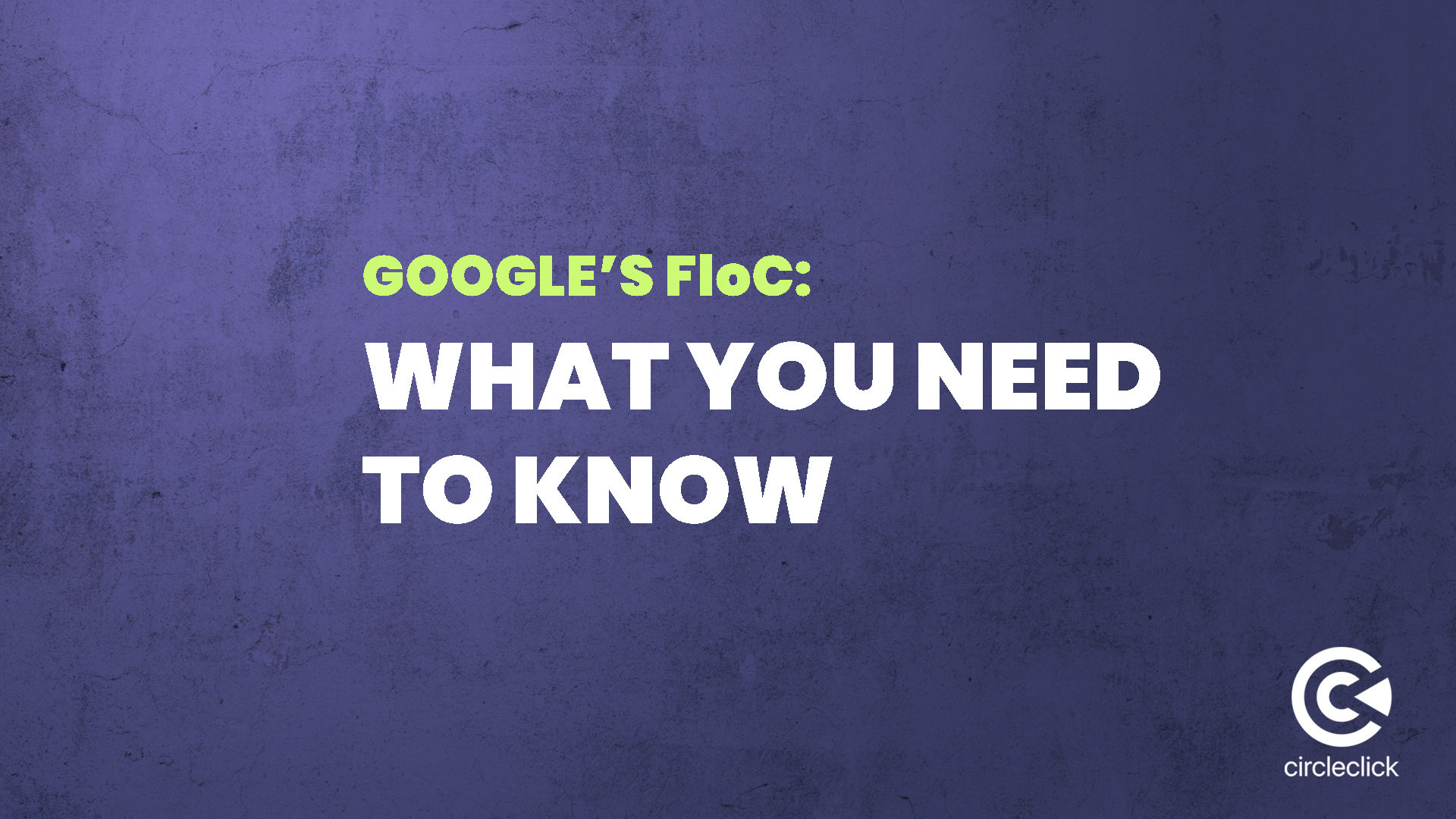Google’s FloC: What you need to know

So you’ve probably seen the headlines- here’s the low down of what’s behind Google’s infamous attempt to rid the world of third-party cookies, i.e. FloC.
What is FloC?
Google’s FloC (Federated Learning of Cohorts) has been a hot topic since the company announced its introduction earlier this year. Initially, Google planned to roll out FloC late this year, but recently announced it will be pushed back until 2023. With the potential to change the accuracy of how advertisers reach their target audience, marketers have their ears perked for updates about how this will affect their business.
With growing pressure to increase user privacy, FloC was introduced by Google as an alternative to third-party cookies. Through SEO and data that users willingly submit while using Google Chrome, Google knows what a website represents so browsing history will be stored through Chrome to place individuals into cohorts of users with similar interests. Cohort IDs are assigned to users and recalculated weekly to keep user interests up to date. The thought is that Google can protect the identities of users by hiding them in a crowd.
What it means for marketers
This change stops marketers from being able to identify users and uniquely target them, instead, providing them a cohort of users with assumed interests. Google’s collected data also powers conversion tracking, a change that marketers are unsure of how to prepare for.
So what’s the issue?
Though introduced as a way to increase privacy while providing a solution to advertisers, regulators, privacy advocates, publishers, and every major browser that uses the open-source Chromium project are not convinced, with the Electronic Frontier Foundation even calling it a “terrible idea“. So why is it met with such strong skepticism? The consensus is that FloC actually creates entirely new privacy concerns because it can be paired with more intrusive forms of tracking such as fingerprinting which gathers information from a user’s machine to create a unique profile.
When combined, FloC narrows down the list for a tracker to identify users among a few thousand instead of hundreds of millions and even opens the possibility to an even greater understanding of an individual user than what was available before. Pair that with users who willingly offer data by making a purchase, completing a survey, etc. and it is possible that, based on that data, further assumptions can be made about the cohort as a whole.
In response, Marshall Vale of Google’s Privacy Sandbox said, “The current FLoC proposal is in the very early origin trial phase to help us get feedback and understand how FLoC might be used so we can continue to improve its design. We fully expect to make changes and improvements that enhance privacy for FLoC as we iterate based on feedback from the web community.”
This feedback includes U.K.’s Competition and Markets Authority which recently announced that it will be playing a role in the design and development proposals by Google’s Privacy Sandbox out of concern that FloC would be used in ways to disrupt competition in digital advertising.
Google could use FloC technology to improve and promote its own products, giving the company a huge competitive advantage ─ and Amazon isn’t playing along. Amazon is blocking FloC from gathering research data on Amazon.com, WholeFoods.com and Zappos.com. Amazon’s bold blocking move not only protects Amazon’s intellectual property, but the move also diminishes FloC performance as user actions on Amazon would offer advertisers some of the most telling e-commerce information out there.
In addition, Amazon has ambitions of expansion by selling digital ads outside of its own properties. With plans to launch an identifier that improves tracking and activity measurements for advertisers, Amazon can be expected not to accommodate Google’s alternative to third-party cookies when it could be to Amazon’s own detriment.
But Google isn’t the only major technology company making privacy policy changes. When Apple released iOS 14.5 in April, it started implementing App Tracking Transparency which requires user permission to track activity across multiple apps to collect data and target ads. Although Facebook and other companies utilizing user data for targeted advertising resisted the change, most have complied so they can remain in Apple’s App Store.
Wrap it up for me
Instead of improving user privacy as is intended, FloC has the potential to reveal even more personal information than before and give Google an unfair competitive advantage. All eyes are on Google to see how the evolution of FloC will impact the results that advertisers have become accustomed to and expect. As Google continues to use feedback to improve FloC and makes more announcements, we can expect to get a clearer picture of what the future of digital advertising holds.


